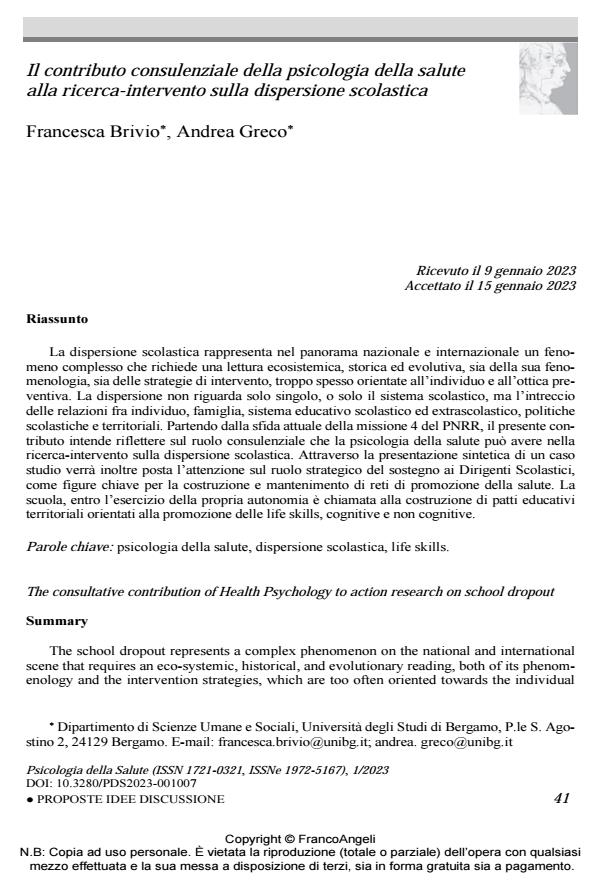The consultative contribution of Health Psychology to action research on school dropout
Journal title PSICOLOGIA DELLA SALUTE
Author/s Francesca Brivio, Andrea Greco
Publishing Year 2023 Issue 2023/1
Language Italian Pages 6 P. 41-46 File size 217 KB
DOI 10.3280/PDS2023-001007
DOI is like a bar code for intellectual property: to have more infomation
click here
Below, you can see the article first page
If you want to buy this article in PDF format, you can do it, following the instructions to buy download credits

FrancoAngeli is member of Publishers International Linking Association, Inc (PILA), a not-for-profit association which run the CrossRef service enabling links to and from online scholarly content.
The school dropout represents a complex phenomenon on the na-tional and international scene that requires an eco-systemic, historical, and evolutionary reading, both of its phenomenology and the inter-vention strategies, which are too often oriented towards the individ-ual and preventive perspective. Dropout concerns not the individual or the school system but the relationships between individual, family, school and extra-curricular education system, and school and territo-rial policies. Starting from the current challenge of mission 4 of the PNRR, this contribution aims to reflect on the consultative role that health psychology can have in action research on early school leaving. Through the concise presentation of a case study, attention will also be paid to the strategic role of supporting School Leaders as crucial figures for the construction and maintenance of health promotion networks. Within its autonomy, the school is called to construct terri-torial educational pacts to promote cognitive and non-cognitive life skills.
Keywords: health psychology, dropout, life skills.
Francesca Brivio, Andrea Greco, Il contributo consulenziale della psicologia della salute alla ricerca-intervento sulla dispersione scolastica in "PSICOLOGIA DELLA SALUTE" 1/2023, pp 41-46, DOI: 10.3280/PDS2023-001007